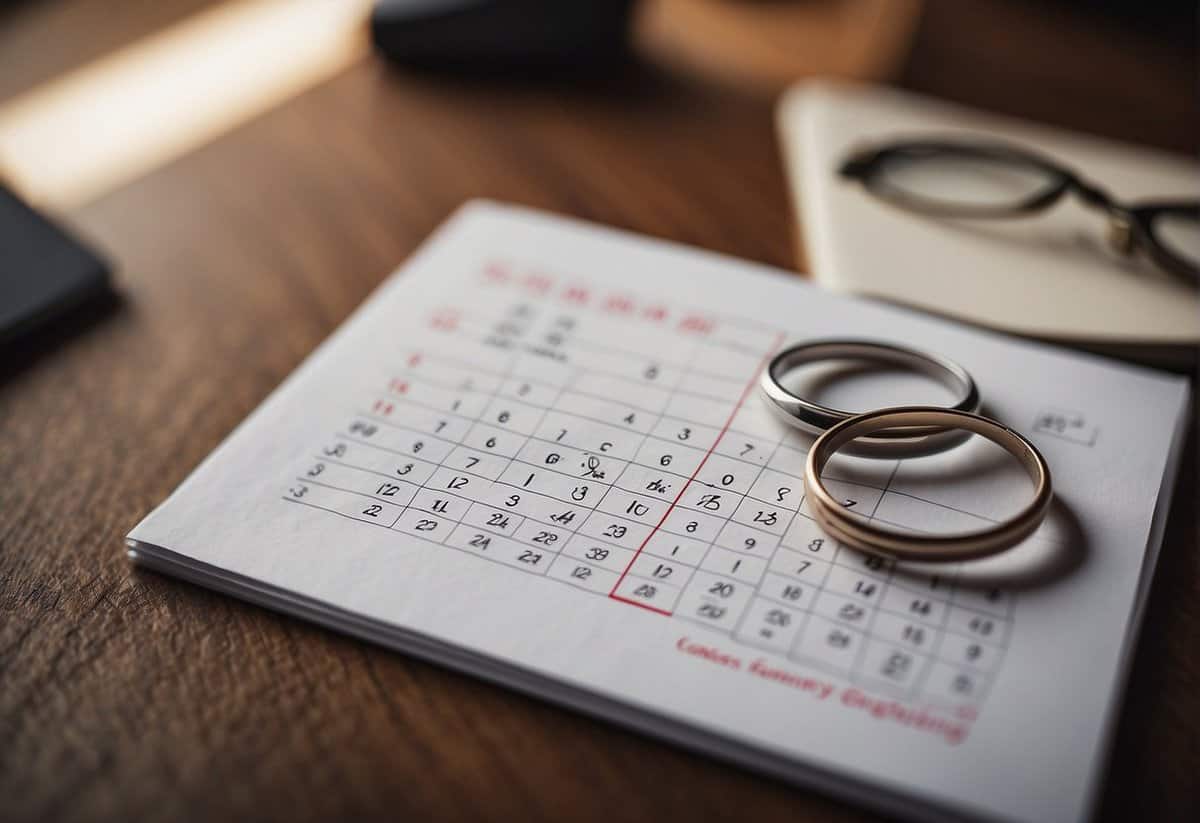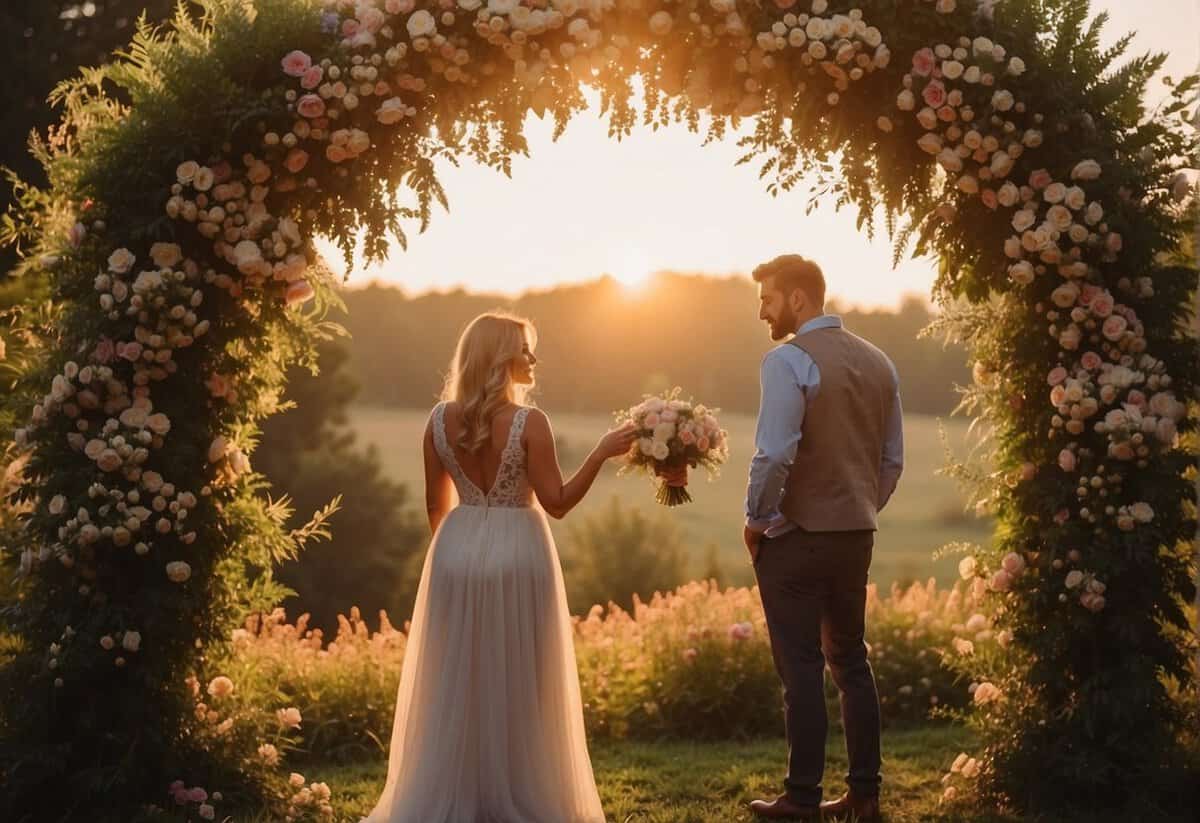Is 36 Too Old to Get Married? Debunking Age-Related Marriage Myths
In considering the age to tie the knot, many individuals ponder if there is such a thing as too late to embark on marital life. Age 36 often comes up in this conversation, challenging the traditional norms of marrying younger. What’s important to remember is that marriage is a deeply personal choice and the timing of it is unique to each individual. In contemporary society, the construct of age-appropriateness for marriage is becoming more fluid, with many people choosing to marry later for a variety of reasons, ranging from career goals to personal growth.

Furthermore, marrying at 36 can offer advantages that younger individuals may not experience. With more life experiences and a solid sense of self, individuals in their late thirties may find themselves better equipped to handle the responsibilities and challenges of a committed relationship. It’s also a time when many have established their careers and have a clearer idea of what they are looking for in a partner, potentially leading to a stronger and more fulfilling partnership. While age may influence certain societal and personal factors, it’s the readiness and compatibility of the individuals involved that truly define the potential for a happy marriage.
Key Takeaways
- Marrying at 36 is a personal choice influenced by individual life circumstances and goals.
- Later marriage can bring greater self-awareness and stability to the relationship.
- Societal norms are evolving, making marriage at any age more accepted.
Societal Perspectives on Age and Marriage

When considering marriage, societal expectations and personal milestones like career and education often influence your decision. Let’s explore how culture, professional life, and current statistics reflect on choosing the right age to tie the knot.
Cultural Expectations and Pressure
Cultural norms can assert a strong influence on when you’re expected to get married. In many societies, there’s a perceived ‘right age’ for marriage, creating pressure to conform. Family expectations might nudge you to marry in your 20s or 30s, insisting that it aligns with traditional values or is best for starting a family. On the other hand, you might feel encouraged by your peer group to delay marriage in favor of personal growth and exploration.
Education and Career Choices Affecting Marriage Age
Your education and career paths play a crucial role in determining when you might consider marriage viable. A portion of men and women prioritize higher education and career establishment which often leads to delaying marriage. The pursuit of advanced degrees or the stabilization of a professional life means marriage might not come into play until you’re in your 30s or even 40s.
Statistics on Marriage Age Trends
Current studies illuminate shifts in societal norms with respect to marriage age. For instance, reports suggest that the median age at first marriage has steadily increased over the past few decades. According to a Pew Research Center study, a significant percentage of young adults have yet to tie the knot, with many focusing on personal goals before entering into marriage. Data from sources like the National Marriage Project also highlight that more people are marrying later in life, often beyond the age of 40.
Personal Considerations for Marrying at 36

At age 36, marrying involves reflecting on your emotional maturity, financial situation, and the experiences you’ve gained from past relationships. These factors significantly influence the quality and readiness of your married life.
Emotional Maturity and Readiness
By the time you’ve reached 36, emotional maturity is often a strength, with a better understanding of compromise and self-awareness in relationships. You are likely more adept at managing the complexities that come with marital responsibilities, and the readiness to commit to a spouse might feel more assured at this stage.
Financial Stability and Career Establishment
Your financial and career paths are likely to be more established. With more years to build and save, you might have more money to contribute to a marriage, lessening monetary stresses. Additionally, with your career possibly well underway, balancing work and personal life, including the needs and responsibilities towards a spouse, could be easier to navigate.
Previous Relationships and Divorce
At 36, you may have significant relationship experience, and possibly, a divorce behind you. This history can be valuable, allowing you to enter a new marriage with insights and a clearer perspective on what a fulfilling married life entails. It’s also a chance to apply lessons from past relationships to strengthen your upcoming union.
Creating a Memorable Wedding in Your 30s

When you’re in your 30s, your wedding can truly reflect your maturity and well-established personal style. This milestone event offers a unique opportunity to celebrate your love with a depth that resonates with where you are in life.
Wedding Planning and Wedding Ideas
Your 30s often bring a clearer sense of identity which can greatly influence your wedding planning. At this stage, you’re likely to have a more defined vision for your special day. When considering wedding ideas, think about what truly matters to you and your partner. Embrace creative themes that reflect your joint interests or choose a sophisticated, timeless style that matches your evolved tastes. Connect with a relationship expert or a wedding planner, who can offer tailored advice and innovative ideas that are perfect for couples in their 30s.
- Themes: Pick a theme that tells your story.
- Budgeting: Allocate funds wisely, focusing on key aspects like venue and entertainment.
- Guest List: Curate a list that includes those closest to you, reflecting on strong and lasting relationships.
Involvement of Family and Accepting Traditions
Your wedding is not just about you and your partner; it’s a pivotal occasion for your family too. In your 30s, you may find that incorporating family traditions or respecting parents’ wishes becomes more important. While some couples may opt for arranged marriages with parental consent, others combine modern elements with traditional aspects. Consider a family heirloom as part of your wedding attire or incorporate time-honored customs into your ceremony.
- Family heirlooms: Use meaningful items as part of your special day.
- Customs: Blend new trends with cherished traditions that honor your heritage.
- Roles: Assign roles to family members to include them in your celebration.
Remember, it’s your wedding, and the final decisions lie with you and your partner. Incorporate family input in a way that complements your vision for a day that you’ll treasure forever.
Benefits and Challenges of Marrying Later in Life

Getting married at age 36 or beyond brings its own set of advantageous and social dynamics that you’ll need to navigate. Let’s explore what that entails, focusing on maturity and patience as assets, and addressing the pressures you might face from society.
Advantages of Late Marriages
Maturity: You’re likely to bring a higher level of maturity to your marriage, a product of years of personal and professional experiences. This maturity can foster a deeper understanding and stronger patience within your partnership. Couples who marry later often find that they have a greater relationship satisfaction, as they know themselves and what they look for in a partner better than they might have in their youth.
Financial Stability: Another benefit you might enjoy is potentially having more financial stability. By this stage, you could have established your career and savings, which can take some stress off the table. This means you’re also likely to make more informed financial decisions together, which can contribute to the overall financial health of your marriage.
Navigating Social Dynamics As an Older Couple
Society’s Expectations: You may come across societal pressures that suggest that getting married in your 30s or later is unconventional. Recurrent questions about your marital status or when you’ll have children can be a source of stress. Some couples also encounter challenges with tax implications that weren’t a factor when single.
Pressure and Happiness: It’s not uncommon to feel external pressure to align with certain life milestones by a specific age. However, as many relationship experts will tell you, the decision to marry should be based on your readiness and happiness. Marrying later in life means you’ve had time to understand what happiness means to you and how to foster it in a relationship.
Frequently Asked Questions

In this section, you’ll find answers to some of the most common questions about the timing of marriage. Whether you’re curious about the ideal age to tie the knot or wondering if love has an expiration date, the following insights aim to address your concerns.
What is the right age to get married for women?
Women often receive varied advice on the right age to get married. While Psychology Today suggests the early to late 20s as a common time, the reality is that the right age is highly personal and can vary based on individual circumstances.
Are there any downsides to tying the knot after turning 30?
Marrying after 30 can come with challenges, such as a potential decline in fertility. However, TIME indicates that marrying later can mean more maturity and financial stability, contributing to a stronger foundation for marriage.
Can men find success in marriage after the age of 35?
Yes, men can find success in marriage after 35. Many men marry after this age and bring a wealth of experience and stability to the relationship, which can be beneficial for a lasting marriage.
Is there a specific age that’s considered too late for finding love?
There is no specific age that’s considered too late for finding love. Love and companionship can be found at any stage of life, as long as you’re open to it.
What are the odds of getting married for the first time in your late 30s?
The odds of getting married for the first time in your late 30s depend on various factors, but they are certainly not negligible. With a growing trend of people focusing on their careers and personal growth before settling down, late 30s marriages are becoming more common.
How does age impact the likelihood of getting married for both men and women?
Age can impact the likelihood of getting married for both men and women, as factors such as fertility and social norms play a role. However, the trend is shifting, and people are getting married later in life as society’s expectations evolve.

